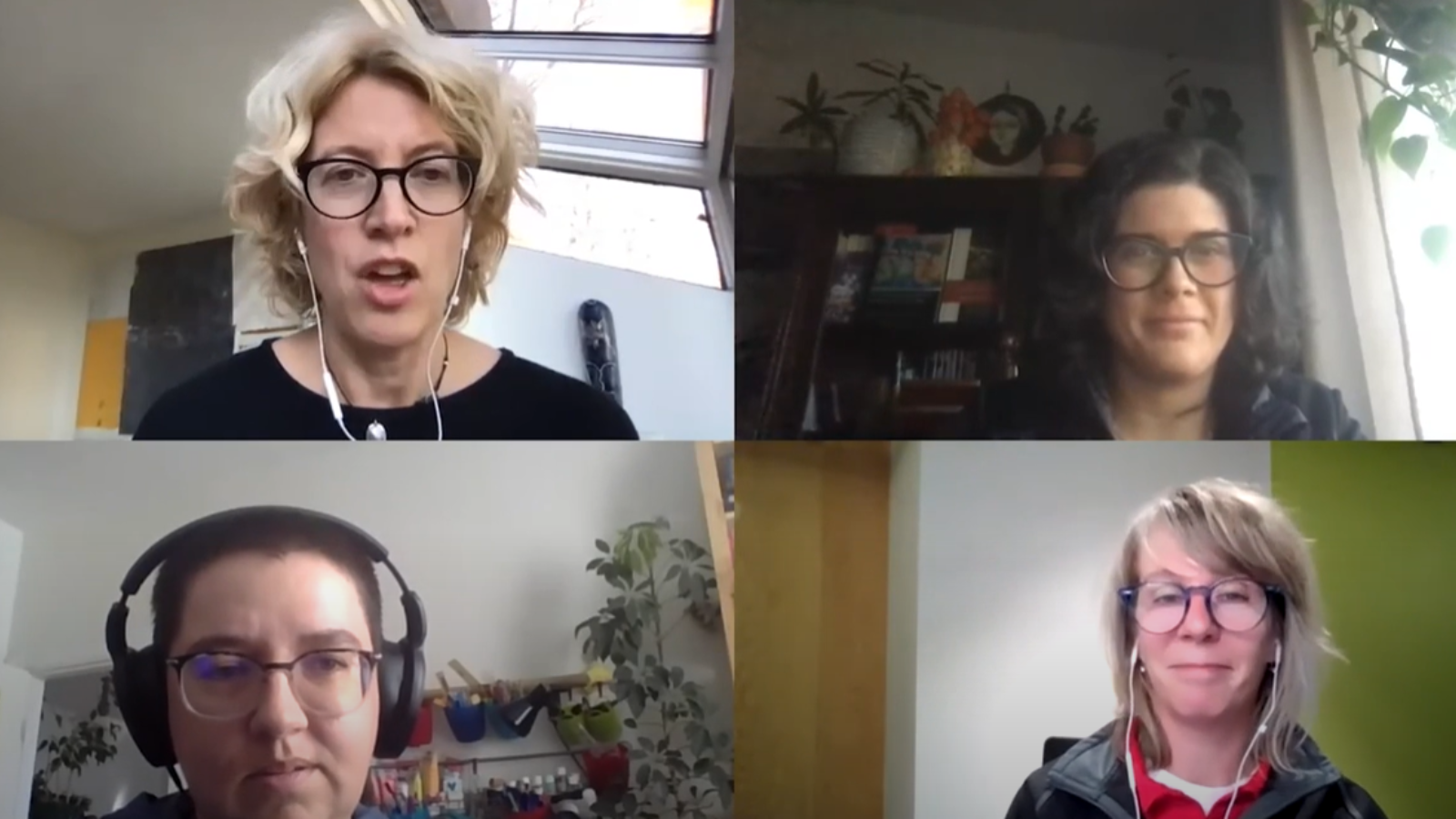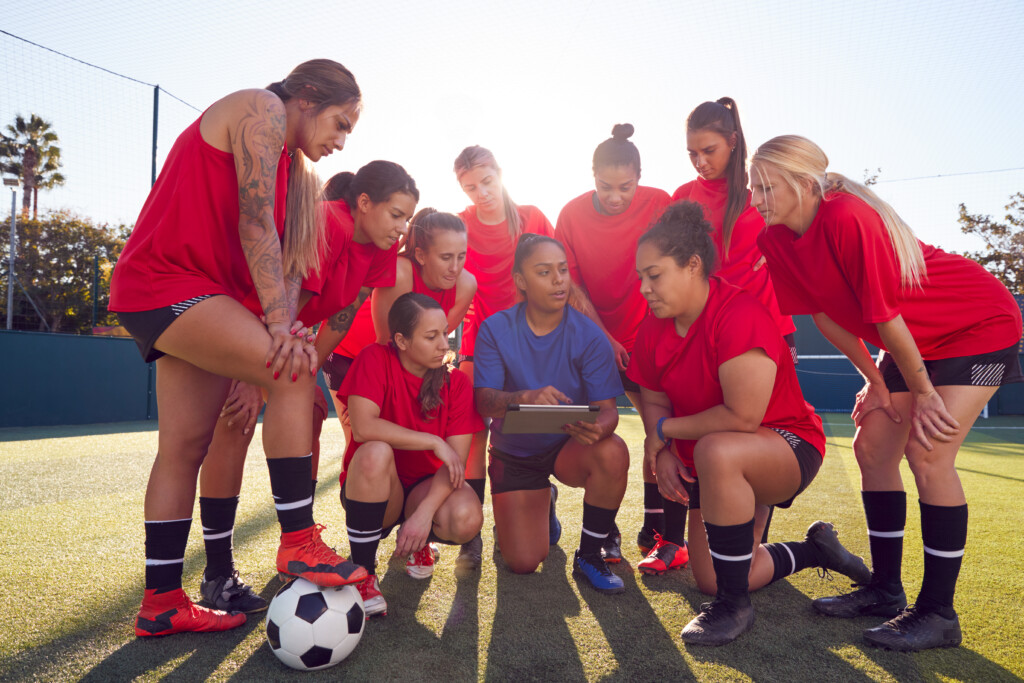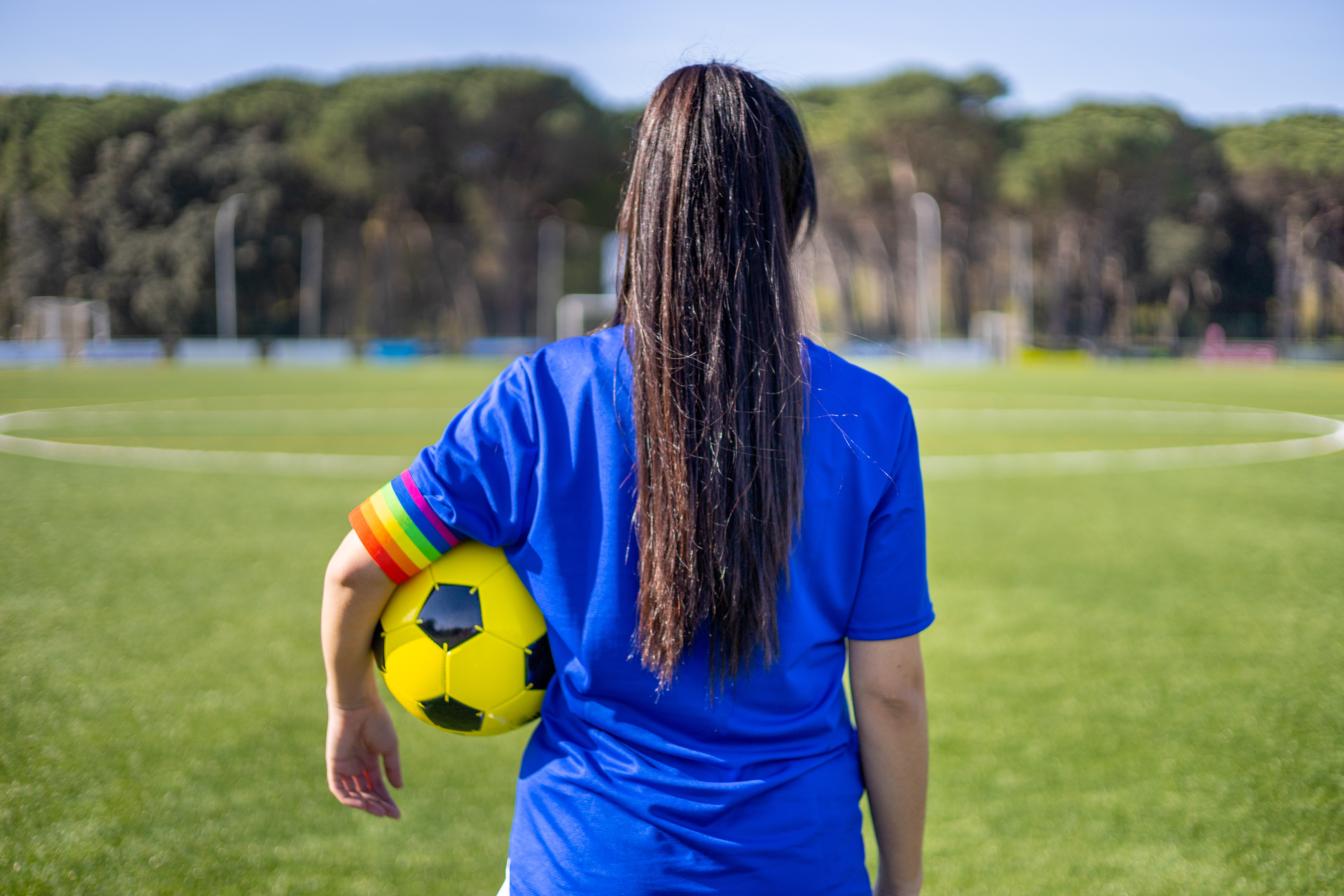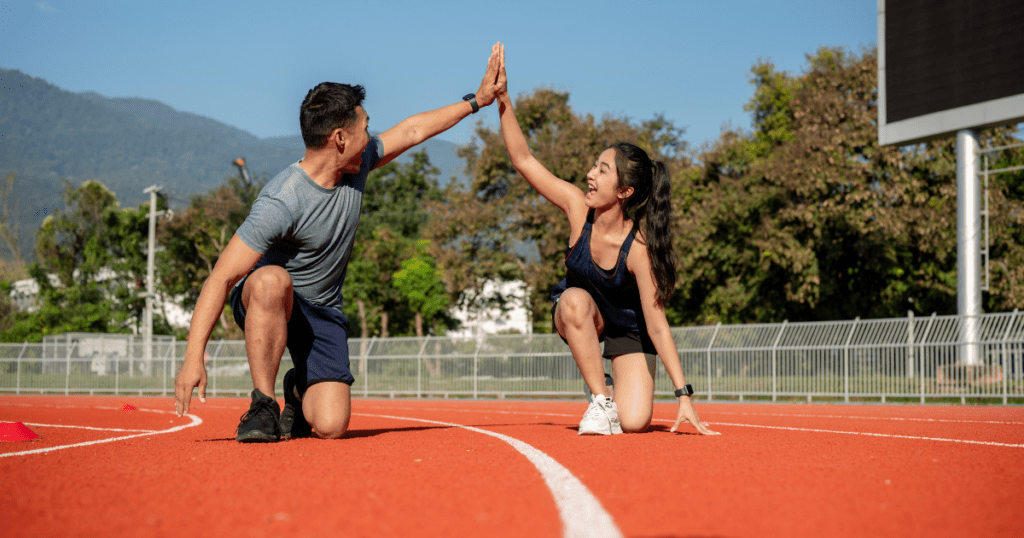- Home
- /
- Resources
- /
- Inclusion
- /
- Gender Equity
Gender Equity
Gender equity in sport refers to creating inclusive and welcoming sport environments for all genders. Our resources offer the latest research and insights related to creating participation opportunities for underrepresented genders.
Search Gender Equity Resources
Top 10 resources
- Key Considerations to Promote the Inclusion of Women, Girls and 2SLGBTQI+ Athletes
- Resources and Training to Support the Inclusion of Women, Girls and 2SLGBTQI+ Athletes in Sport
- Organizations Leading the Way to Support the Inclusion of Women, Girls and 2SLGBTQI+ Individuals in Sport
- SIRC Article: Understanding the Capacity of National Sport Organizations (NSOs) for Gender Equity: Recommendations for NSO Leaders and Policy Directors
- SCRI Panel: Equality, Diversity and Inclusive Practices in Sport Organizations
- Working Group on Gender Equity in Sport
- Rally Report 2022: A Call For Better, Safer Sport for Girls
- What the Research Says About Mom’s Participation in Physical Activity and Sport
- Promoting Gender Equity through Sport
- The Leading Edge: Good Practices for Creating Gender-Equitable Boards in Sport

Featured resource
SIRC and Canadian Women & Sport

Featured resource
Laval University, Concordia University, and SIRC

Featured resource
Sport Information Resource Centre

Featured resource
Hayley Baker

Featured resource
SIRC and Canadian Women & Sport
Quick Facts
What is gender equity in sport, and why is it important?
Gender equity in sport means ensuring fair treatment and opportunities for all genders. It it crucial because it promotes inclusivity, fights discrimination, and allows everyone to participate and excel in sport. It means equipping those who have been disadvantaged with the appropriate resources to bring more balance into the system.
Which groups need more research and inclusion in sports to achieve gender equity?
Groups needing more research and inclusion for gender equity in sport include women, transgender, and non-binary athletes. Addressing their unique challenges and barriers is crucial for creating a truly equitable and inclusive sports environment.
What does 2SLGBTQI+ mean?
2SLGBTQI+ is the term that refers to individuals who are part of sexual and gender diverse communities. They refer to the following:
2S: Two-Spirit
L: Lesbian
G: Gay
B: Bisexual
T: Transgender
Q: Queer
I: Intersex (sex characteristics beyond sexual orientation, gender identity, and gender expression)
+ Inclusive of other individuals who may use additional terminology.
How can sport organizations move towards gender equity?
One step would be to implement minimum numbers as part of a gender-equal board. This could be done by requiring that a minimum number of the positions be held by each gender or non-binary individuals.
Have recruitment and hiring strategies are free of bias. This can be achieved by having individuals apply without indicating their gender or have hiring committees that are split equally by gender.
Create a welcoming and equitable culture by ensuring the proper policies are in place that emphasize respect and inclusion. Sport leaders should demonstrate those values so that other team members are encouraged to do the same.
Other examples of what can be done include making sure all genders are represented in promotional materials but ensuring to avoid stereotypes; making sure all genders have fair access to resources, equipment, and facilities; and ensure that gender-split programs are each getting the resources/funding that they deserve.
What are the benefits of gender equity in sport?
At the board and organizational level, it brings an increased number of perspectives, backgrounds, skills, which can improve innovation and decision-making. At the coaching and officiating level, it means more a wider pool of qualified candidates from which to recruit. At the workplace level, there are many benefits, but they can be summed up in an increased respect between coworkers and between levels within the organization. And in sport participation, it means the creation of a positive environment for all participants!
Video Resources
Mom’s Got Game (short version)
- SIRC
- 2021
SCRI: Examining and Addressing Constraints to Sport Participation among Female Adolescents
- Ontario Tech University and SIRC
- 2021
SCRI Presentation – Power of Sport: The True Sport Report
- The Canadian Centre for Ethics in Sport and SIRC
- 2023
Driving Change Spotlight: Kyle McFarlane
- Golf Ontario and SIRC
- 2023
Driving Change Spotlight: Lee Anna Osei
- Black Canadian Coaches Association and SIRC
- 2020
Engaging Girls and Women in Sport Mini Series – Part 4 : Connecting mind and movement
- University of British Columbia, University of Ottawa, Team Canada, Canadian Women & Sport, and SIRC
- 2022
Knowledge Nuggets
knowledge nuggets
Want to improve girls’ body image in sport?
Want to improve girls’ body image in sport? Start by asking the experts, the girls themselves. This global study did just that.
Want to improve girls’ body image in sport? Start by asking the experts, the girls themselves. This global study did just that.
knowledge nuggets
Female health after sport
Research on retired high-level Australian female athletes reveals important health concerns that are often overlooked. These issues were often underreported and poorly managed. The findings
Research on retired high-level Australian female athletes reveals important health concerns that are often overlooked. These issues were often underreported and poorly managed. The findings show why routine screening, education, and stigma-free support are needed to protect athletes’ health during and after their careers.
knowledge nuggets
Concussions in female athletes: closing the research gap
Historically, concussion research has focused on men, even though women often respond differently to brain injury due to biomechanical, hormonal, and neurological factors. A 2024
Historically, concussion research has focused on men, even though women often respond differently to brain injury due to biomechanical, hormonal, and neurological factors. A 2024 review shows how brain imaging and artificial intelligence can uncover sex-specific patterns, helping improve diagnosis, treatment, and recovery for female athletes.
knowledge nuggets
Preventing abuse in sport takes ongoing effort
An International Olympic Committee consensus found interpersonal violence is common in sport, with psychological abuse occurring most often and posing higher risk for youth, LGBTQ+
An International Olympic Committee consensus found interpersonal violence is common in sport, with psychological abuse occurring most often and posing higher risk for youth, LGBTQ+ athletes, and athletes with disabilities. The findings highlight the need to hear from athletes, embed trauma informed practices, and create sport environments built on respect and safety.
knowledge nuggets
How contraceptive choice impacts female endurance athletes
Hormonal IUDs are the most commonly used and best-tolerated form of contraception among female endurance athletes, according to a recent study. With fewer negative side
Hormonal IUDs are the most commonly used and best-tolerated form of contraception among female endurance athletes, according to a recent study. With fewer negative side effects and more positive impacts on performance compared to other methods, the findings highlight the need for sport-informed contraceptive counselling to support athlete health and performance.
knowledge nuggets
Concussion non-disclosure in women’s rugby
Disclosing concussion symptoms is crucial for proper recovery and to prevent a second impact. A study of female rugby players found that many conceal their
Disclosing concussion symptoms is crucial for proper recovery and to prevent a second impact. A study of female rugby players found that many conceal their symptoms due to concerns about work, limited awareness, and poor communication around concussion management. Recognizing these barriers can help team managers develop initiatives that encourage symptom disclosure and enhance education.
knowledge nuggets
LGBTQ+ Women in Rugby
A recent study in the women’s rugby community revealed that most LGBTQ+ women experience inclusive interactions with others. But, participants also pointed to barriers to
A recent study in the women’s rugby community revealed that most LGBTQ+ women experience inclusive interactions with others. But, participants also pointed to barriers to full inclusion, including the use of homophobic language in their environment and the persistence of harmful stereotypes. Team managers can use this insight to shape more effective EDI initiatives grounded in education and awareness.
knowledge nuggets
Menstruation and athletes
Conversations around menstruation are becoming more common in sport. According to the Empow’Her program led by France’s National Institute of Sport, Expertise, and Performance, female
Conversations around menstruation are becoming more common in sport. According to the Empow’Her program led by France’s National Institute of Sport, Expertise, and Performance, female athletes may experience menstrual soreness, cramps, digestive disorders, bloating and increased tiredness during their periods. Since symptoms are different for each person, the impact on training will vary and require an individualized approach to symptom management.
More Gender Equity resources
|
|
|
|
|
|
|
|
|
|
|
|
